The programme is only conducted in Lithuanian language. Entry requirements for this particular programme can be found in the programme description provided in Lithuanian language.
in Lithuanian
Where art and innovation meet
Music is not only about sounds but also about the technologies that create modern works, improve sound or create perfect acoustics. From acoustics and art production law to music direction and audio-visual advertising design, Music Technologies is an opportunity to delve into the secrets of the modern world of sound. Graduates are highly valued by TV and radio stations and recording studios because they are well-prepared to work with software and various technologies.
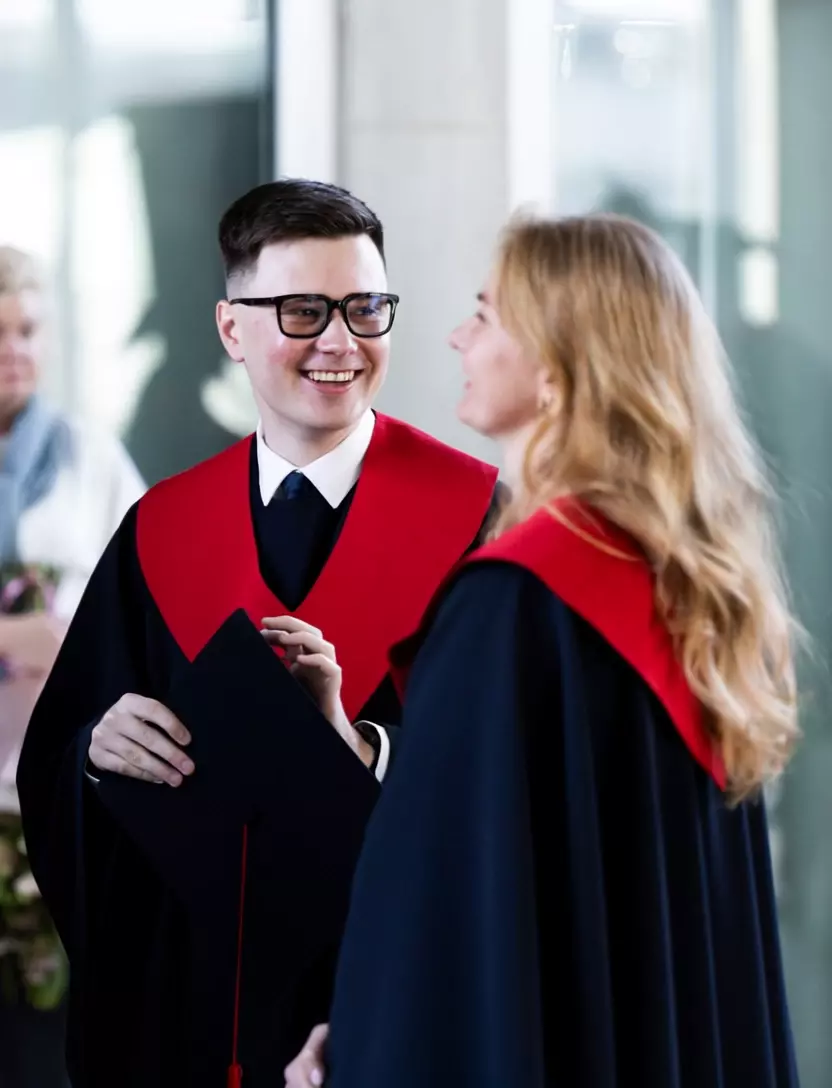
This study programme offers the opportunity to learn from well-known and award-winning professionals, composers and performers, such as Linas Adomaitis, Motiejus and Mykolas Bazaras and others. Among the lecturers there are members of the Lithuanian Composers’ Union and winners of the Golden Stage Cross Awards.
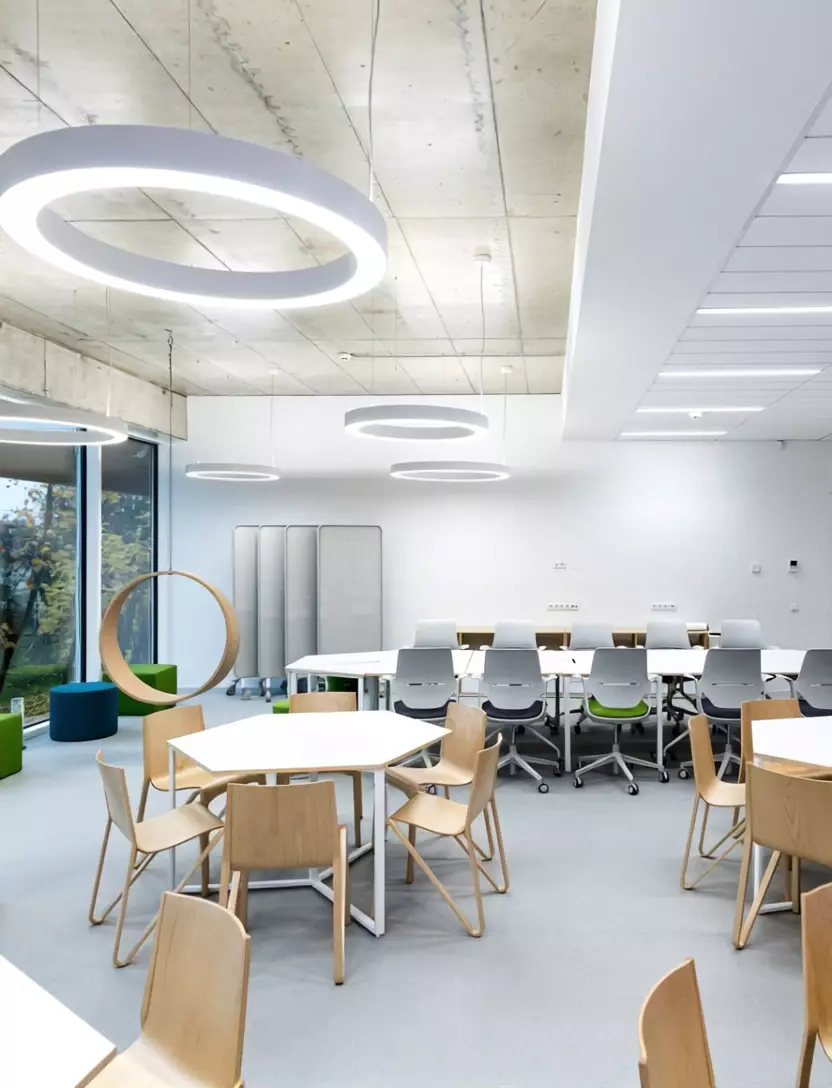
In the KTU sound recording studio, you will be able to work with professional equipment, which is constantly updated and expanded. Students also have access to a specialised computer lab with software and synthesizers to create music.
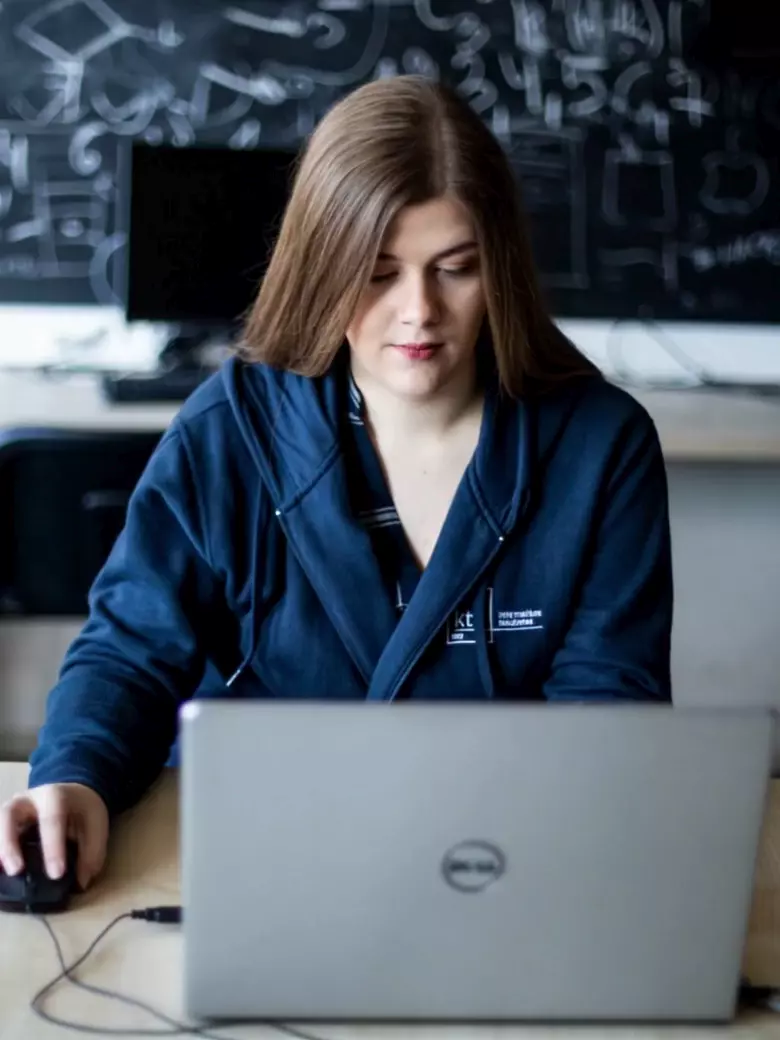
You will work with world-renowned software like Steinberg, Cubase, Samplitude, Ableton, Waves audio, Finale, Smaart, Soundvision, Mapp XT, ArrayCalc and others. You will gain practical skills in audio production and event work, which will prepare you for the real job market and start your career in music technology.
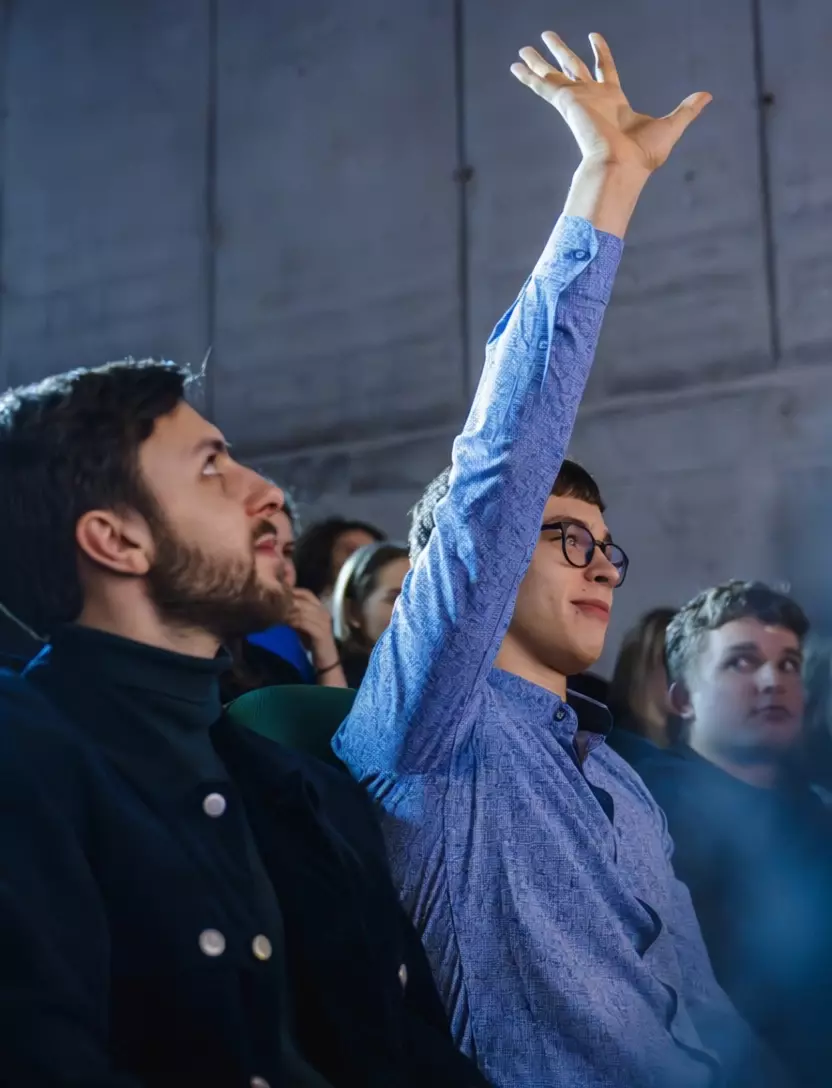
You can tailor your studies to your personal interests and career goals by choosing specialised study modules.
Combine creativity and technology – become a music technology professional.
You will gain an understanding of sound technology, recorded music, music processing and industry principles. Practical projects and experienced teachers will ensure you are market-ready and develop the creativity and technological skills needed to produce contemporary music projects.
Here are some of the careers you can pursue after your studies:
Responsible for the recording, editing and mixing of music in recording studios and for the sound quality of events or projects.
Manages the creative process, from recording and arranging to artistic decision-making in music projects.
Capable of managing and applying Artificial Intelligence (AI) across various sectors of the entertainment industry.
| Module name | Credits | Method of organisation |
|---|
| History of the 20th Century Music | 6 | On-campus learning |
| Informatics 1 | 6 | On-campus learning |
| Introduction to Logic | 6 | On-campus learning |
| Introduction to Music Technologies | 6 | On-campus learning |
| Music Background | 6 | On-campus learning |
| Module name | Credits | Method of organisation |
|---|
| Academic and Technical Communication in English (Level C1) | 6 | On-campus learning |
| Acoustics 1 | 6 | On-campus learning |
| Fundamentals of Audio Technologies 1 | 6 | On-campus learning |
| Introduction to Research Methods | 6 | Blended learning |
| Media Philosophy | 6 | Blended learning |
| Sustainable Development | 6 | On-campus learning |
| Module name | Credits | Method of organisation |
|---|
| Fundamentals of Acoustics 2 | 6 | On-campus learning |
| Fundamentals of Audio Technologies 2 | 6 | On-campus learning |
| Music Arrangement | 6 | On-campus learning |
| Music Production | 6 | On-campus learning |
| Optional Subjects 2026 | 6 |
| Module name | Credits | Method of organisation |
|---|
| Basics of Sound Synthesis | 6 | On-campus learning |
| Directions of Publicity Projects | 6 | On-campus learning |
| Music Recording 1 | 6 | On-campus learning |
| History of Audiovisual Art | 6 | On-campus learning |
| Music Software | 6 | On-campus learning |
| Product Development Project | 12 | On-campus learning |
| Module name | Credits | Method of organisation |
|---|
| Aesthetics of Music | 6 | On-campus learning |
| Cinema Music and Sound Effects | 6 | On-campus learning |
| Copyright of Art Production | 3 | On-campus learning |
| Cultural Industries | 3 | On-campus learning |
| Music Recording 2 | 6 | On-campus learning |
| Sound System Design | 6 | On-campus learning |
| Module name | Credits | Method of organisation |
|---|
| Bachelor’s Degree Final Project | 15 | On-campus learning |
| Professional Internship | 15 | On-campus learning |
The programme is only conducted in Lithuanian language. Entry requirements for this particular programme can be found in the programme description provided in Lithuanian language.
in Lithuanian
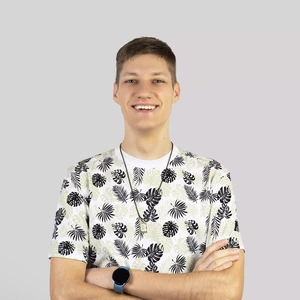
The Music Technologies programme encourages creative experimentation and helps to discover ideas that I can later put into practice. The programme is comprehensive, allowing to get to know different branches of the specialty. What impresses me most are the teachers who share their professional experience and their lectures that encourage me to go further and apply my knowledge in real life.
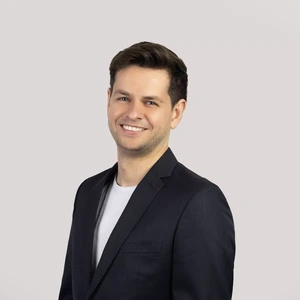
At the university, I not only studied, but also participated in the activities of the Students’ Union played in the KTU orchestra while also having a job. This study programme is most suitable for those interested in sound recording, production, sound design and the application of technology to music. What I liked most about my studies was that I could spend long hours in a sound recording studio.
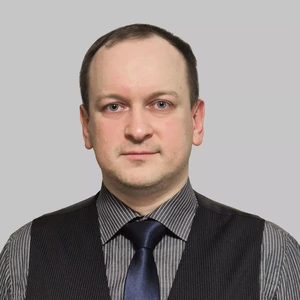
The need for music technology professionals is high as the events’ industry expands, projects become more complex and new technologies require professionals who can keep pace with modern innovations and the latest equipment. KTU students are welcome in business and industry during their studies, so they have the opportunity to take an interest in their favourite fields and thus quickly achieve high positions at their job places.
This course is taught entirely in Lithuanian, which means that all academic activities are conducted in this language.
The Music Technologies programme does not require a musicology exam. However, the grade is added as an extra point (with a coefficient of 0.15).
KTU Music Technologies is chosen by students who value the opportunity to work with professional equipment and software, to acquire theoretical and practical skills in music, sound engineering and audiovisual technologies, to participate in creative projects and to prepare for a career in sound studios, events or music production.
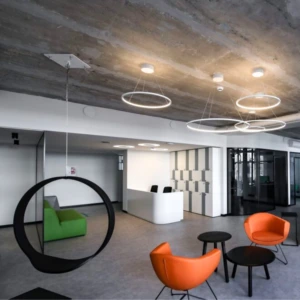
Talk to us, study with us:
K. Donelaičio St. 73, LT-44249 Kaunas
phone +370 679 44 555
email studijos@ktu.lt
Faculty of Social Sciences, Arts and Humanities
I Chamber
A. Mickevičiaus St. 37, LT- 44244 Kaunas
email shmmf@ktu.lt
 virtual tour
virtual tour